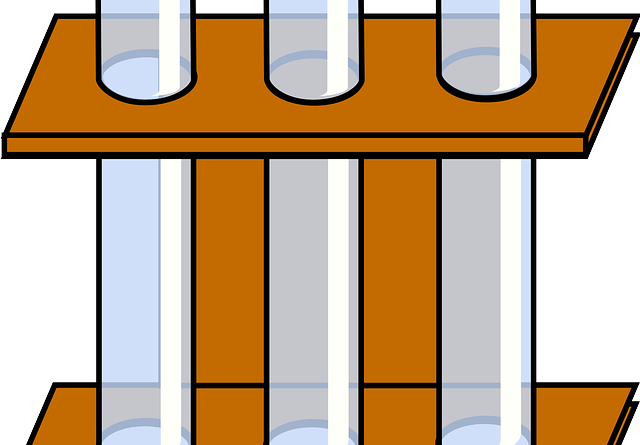Drugs and Health Care
Drug abuse remains a pressing global concern, with profound implications for individual health and well-being. This article delves into the intricate relationship between drugs and health care, exploring the impact of substances on our physical and mental well-being and the role of health care in addressing these challenges.
1. Introduction
In a world grappling with the consequences of substance abuse, understanding the intricate connection between drugs and health care is paramount. This article seeks to shed light on the multifaceted nature of this relationship, exploring the impact of drugs on health and the pivotal role health care plays in mitigating associated issues.
2. The Impact of Drugs on Health
Substances and Their Effects
Various substances, from opioids to stimulants, exert diverse effects on the human body. Unraveling the physiological and psychological consequences is crucial for developing effective interventions.
Long-Term Health Consequences
Delving into the long-term repercussions of drug abuse unveils a spectrum of health issues, ranging from cardiovascular problems to mental health disorders. Acknowledging these consequences is vital for crafting comprehensive health care strategies.
3. The Role of Health Care in Combating Drug-related Issues
Prevention Strategies
Prevention remains a cornerstone in the battle against drug abuse. Health care initiatives must prioritize education and awareness to empower individuals to make informed choices.
Treatment Approaches
Effective treatment involves a combination of medical, psychological, and social interventions. This section explores the array of approaches adopted by health care professionals in aiding recovery.
4. Challenges in Drug and Health Care Integration
Stigma Surrounding Addiction
Overcoming the societal stigma attached to addiction is a critical hurdle. The article examines the ways in which stigmatization impedes access to health care for those struggling with substance abuse.
Access to Treatment
Disparities in accessing treatment pose a significant challenge. Analyzing the factors contributing to these discrepancies is essential for devising equitable health care solutions.
5. Government Initiatives and Policies
Legislative Measures
Governments worldwide are implementing legislative measures to curb drug abuse. This section explores the efficacy of such policies and their impact on health care services.
Public Health Campaigns
Public health campaigns play a pivotal role in disseminating information and changing societal attitudes. Examining successful campaigns provides insights into shaping effective public health strategies.
6. Holistic Approaches to Drug and Health Care
Mental Health Considerations
Acknowledging the interconnectedness of mental health and substance abuse is imperative. The article discusses holistic approaches that integrate mental health considerations into drug rehabilitation programs.
Rehabilitation Programs
Beyond traditional medical interventions, rehabilitation programs focusing on vocational training and community reintegration contribute significantly to sustained recovery.
7. Community Involvement and Support
Support Groups
Community support groups foster a sense of belonging and understanding. Exploring their role in the recovery process highlights the importance of communal aid.
Education and Awareness
Educating communities about the realities of drug abuse is a proactive measure. The article emphasizes the need for ongoing awareness initiatives within communities.
8. Emerging Technologies in Health Care for Drug Addiction
Telemedicine
Technological advancements, particularly in telemedicine, offer novel ways to deliver health care services. This section explores how telemedicine is transforming addiction treatment accessibility.
AI-Assisted Therapies
The integration of artificial intelligence in therapeutic interventions is a burgeoning field. Examining AI-assisted therapies provides a glimpse into the future of personalized drug rehabilitation.
9. Success Stories and Testimonials
Personal Experiences of Recovery
Sharing personal narratives of triumph over addiction fosters hope. This section features inspiring stories of individuals who have successfully navigated the path to recovery.
Overcoming Challenges
Acknowledging the challenges encountered during recovery is crucial. The article explores how resilience and determination play pivotal roles in overcoming obstacles.
10. The Future Landscape of Drug and Health Care
Evolving Treatment Methods
As technology advances, so do treatment methodologies. This section speculates on the potential evolution of drug rehabilitation techniques.
Potential Breakthroughs
Highlighting ongoing research and potential breakthroughs in the field of addiction medicine provides a glimpse into the promising future of drug and health care.
11. Conclusion
In concluding our exploration of the intricate relationship between drugs and health care, it is evident that a holistic and collaborative approach is imperative. Only through concerted efforts in prevention, treatment, and community support can we hope to alleviate the profound impact of drug abuse on individuals and society.
Get Access Now: https://bit.ly/J_Umma
Give my new GPT a try: https://chat.openai.com/g/g-xMTYfDbb4-human-written-100-unique-seo-optimized-article)
5 Unique FAQs on Drugs and Health Care
-
Q: Are there specific demographics more prone to drug addiction?
- A: Drug addiction can affect individuals across all demographics, but certain factors like genetics, environment, and mental health can contribute to vulnerability.
-
Q: How can communities actively support individuals in recovery?
- A: Communities can offer support through awareness campaigns, creating safe spaces, and encouraging open dialogues to reduce stigma.
-
Q: What role does technology play in modern drug rehabilitation programs?
- A: Technology, including telemedicine and AI-assisted therapies, is transforming drug rehabilitation by enhancing accessibility and personalization.
-
Q: How can policymakers address the disparities in access to addiction treatment?
- A: Policymakers can implement equitable policies, allocate resources, and prioritize education to bridge the gap in access to addiction treatment.
-
Q: What are some signs that someone may be struggling with drug addiction?
- A: Signs include changes in behavior, physical appearance, social withdrawal, and neglect of responsibilities. Seeking professional help is crucial for early
